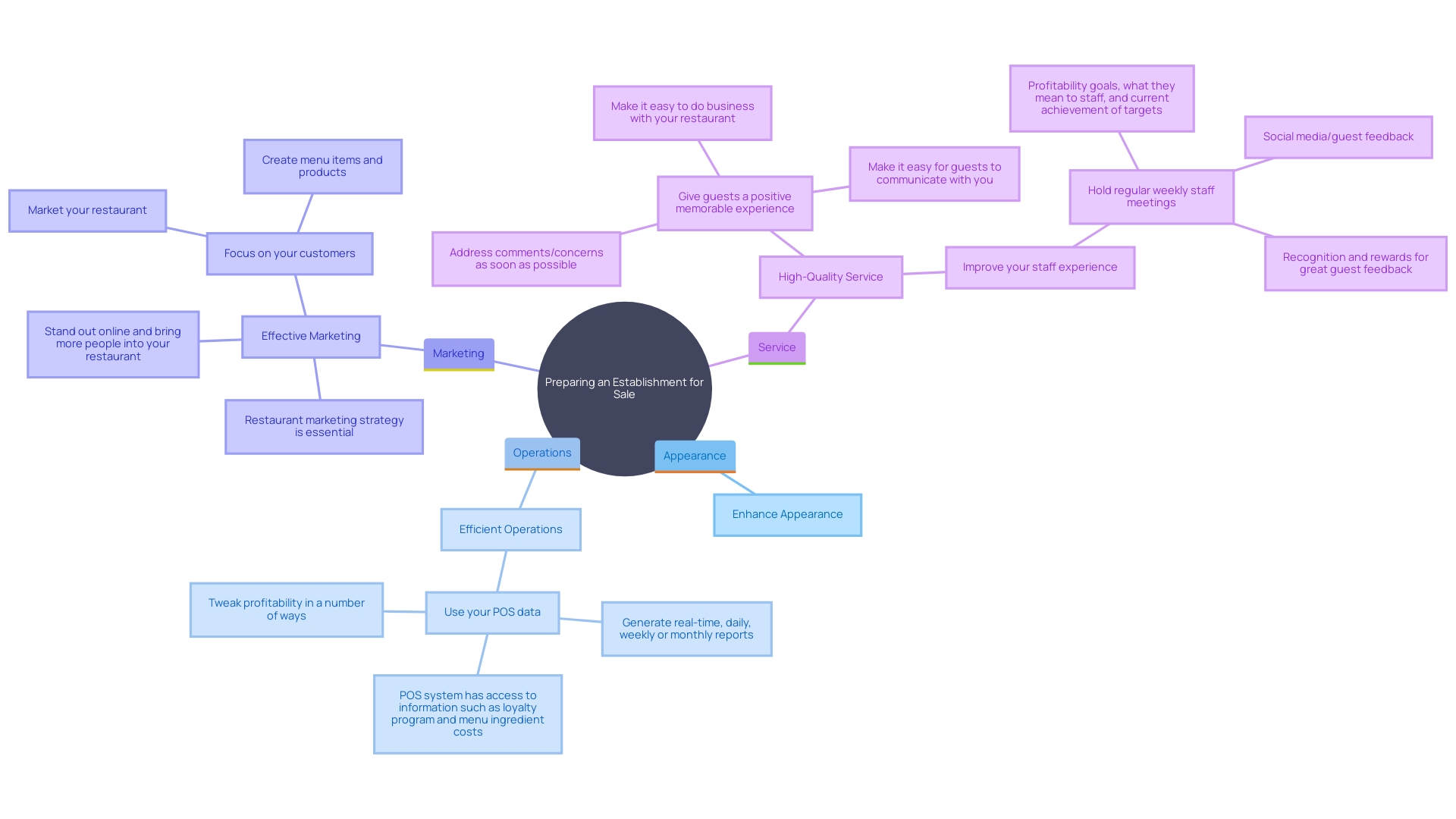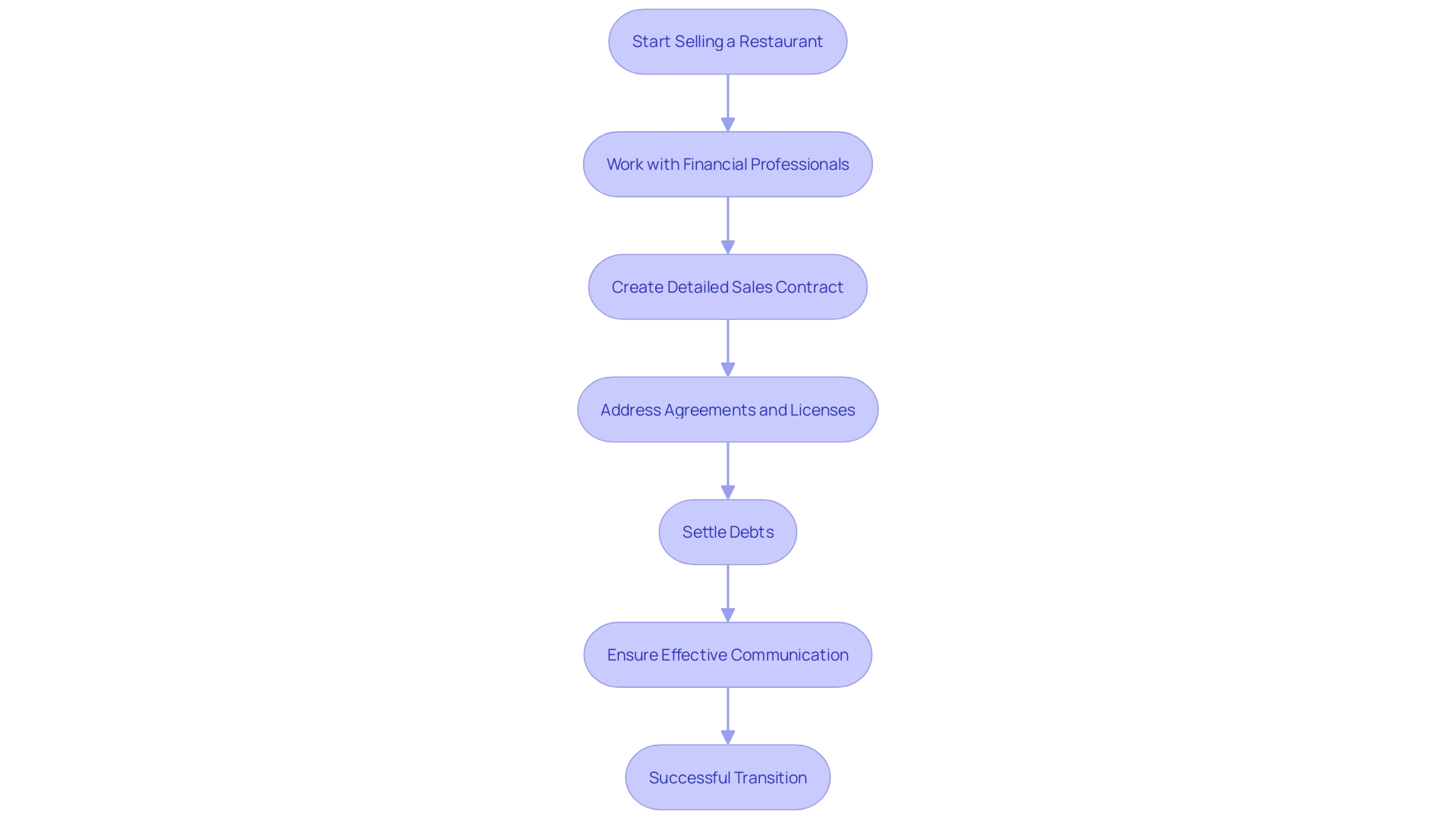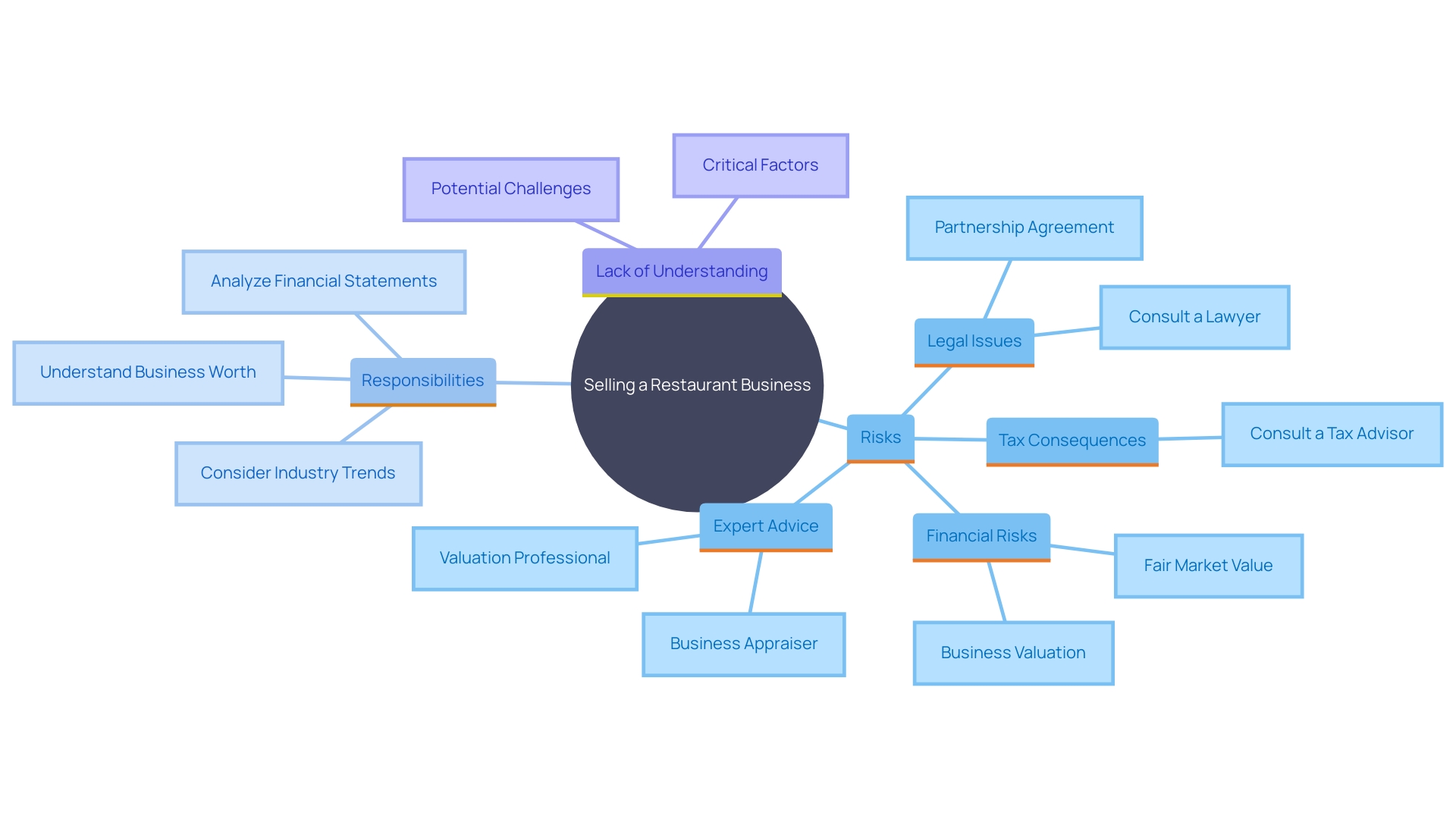Introduction
Starting the process of selling a restaurant demands a mix of thinking and thorough planning ahead of time. This detailed handbook provides a roadmap with steps to help you navigate the intricacies involved in selling your restaurant. From accurately assessing your establishments true worth to smoothly transitioning ownership. By reviewing statements diligently and improving the overall attractiveness of the restaurant while organizing necessary paperwork meticulously owners can present their business in an appealing light, to interested buyers.
To get the deal when selling your restaurant business is important to use good marketing plans and negotiation skills with the help of experts like business brokers and lawyers for a smoother process that covers all legal and financial details thoroughly.This manual is designed to help restaurant owners sell successfully and pave the way, for endeavors.
Step 1: Determine the Value of Your Restaurant
Selling your eatery effectively begins with assessing its worth by carefully examining your financial records like profit and loss statements and balance sheets as well as cash flow reports. Different elements like the establishment's location, reputation, possible clients, and existing market conditions all have an influence. For instance, the rising costs of ingredients and lack of workforce are obstacles in the current industry landscape. To navigate through these intricacies in the business world's fast paced environment hiring a professional appraiser is crucial, to obtaining an unbiased valuation that accurately reflects the true value of your business when setting your asking price.

Step 2: Prepare Your Restaurant for Sale
Preparing your establishment for sale involves enhancing its appearance for prospective clients, from upgrading the decor to reorganizing the layout and addressing any maintenance issues that may exist. Creating a designed space that promotes a seamless transition between the kitchen and dining sections is key. Ensure your eatery is functioning efficiently since a well-managed establishment is more attractive to potential purchasers.
Along with that point is how a rounded marketing plan can truly enhance the appeal of your eatery or dining spot and significantly boost its charm for prospective customers and patrons alike. Make sure to showcase those dishes and culinary creations unique to your establishment. Whether it's the daily specials or cuisine inspired by specific regions of the world. Highlighting how your promotional campaigns have effectively drawn in diners and financial backers not showcases past success but also signals a promising trajectory, for the future expansion and development of your establishment.
Ensure your team is thoroughly prepared to maintain high quality service standards, as service can have a considerable effect on both clients and prospective customers. Employing skilled and passionate team members will help you achieve your goals and provide an outstanding dining experience that enhances the attractiveness of your establishment to prospective customers.

Step 3: Gather Necessary Documentation and Financial Records
To prepare your establishment for sale and guarantee a procedure for prospective purchasers, it's essential to uphold transparency and remain well organized. Begin by gathering all the paperwork, like tax documents, employment agreements, rental contracts and any permits/licenses that are needed. Potential customers will likely want to go through your history so it's best to have at least three years worth of financial statements ready. This level of preparation not fosters trust but also simplifies the entire selling process.
Chris Macksey operates Prix Fixed accounting firm that specializes in assisting restaurant enterprises thrive by offering a customized array of services for a fee. Fixed cost services are prominent in his offerings owing to his background in the restaurant sector, which emphasizes the importance of meticulousness and organization in sales.
Keeping records and being open about your finances can also assist in addressing the issues encountered by the hospitality sector like staffing shortages and frequent turnover rates; establishing trust and ensuring clarity, for prospective buyers can streamline the selling process effectively.
James Fripp emphasizes the significance of establishing connections grounded in trust for attaining lasting growth, as stated by the Chief Equity Inclusion and Belonging Officer. Building trust is essential in commercial dealings such as selling an eatery; providing detailed and well-organized information sets the foundation for trust. Enhances the likelihood of a smooth and prosperous sale process.

Step 4: Market Your Restaurant to Potential Buyers
'Marketing is crucial for attracting patrons to your establishment by utilizing online platforms and social media effectively, as well as leveraging local connections to expand your reach. A noteworthy example is Chipotle's innovative marketing strategy, where they introduced a napkin holder inspired by customer habits. Their success underscores the significance of understanding and catering to the preferences of your target audience.'.
Creating a list that emphasizes the unique advantages of your restaurant – whether it’s a loyal customer group, a prime location, or unique menu offerings – can genuinely influence success, as noted by Nya Beconder from Sevan Multi Site Solutions, who underscores the importance of highlighting essential selling features to draw in potential clients effectively.
In the industry of restaurants in New York City with a number of 25 thousand eateries as mentioned by Ayotte in person is significantly important to stand out not just by name but by becoming a sought after dining spot as well employing networking tactics is crucial for connecting with professionals to find sincere buyers and open doors for valuable interactions always remember to incorporate an engaging call to action in your marketing strategies as it serves as a link, between interest and action motivating potential buyers to move forward

Step 5: Review Offers and Negotiate the Terms of the Sale
Getting offers for your business is a milestone; however the real challenge emerges when you begin assessing these offers It's important to see past the initial offer price and dive into the specifics of the terms Examine the payment method. Be it a one time payment or an earn out plan linking the ultimate price to future performance indicators Also review any conditions and the suggested timelines, for closing the deal
Negotiating is like walking a tightrope. It needs both patience and confidence to strike the balance. According to insights from Doug Bend at Bend Law Group having a non disclosure agreement is crucial to safeguard your company's confidential information while engaging in negotiations. It's equally important to state your desired price point as highlighted by Nanxi Liu of Blaze.tech. This transparency aids, in evaluating whether a potential deal is worth pursuing taking into account the resources and effort required to finalize the transaction.
It's important to keep in mind that negotiations go beyond finalizing a deal. They're also about building strong relationships that can pave the way, for future transactions and lasting prosperity. Having a rate of repeat business and satisfied customers signals that your negotiation skills are effective. By engaging in role playing and preparation when practicing negotiation strategies you can greatly enhance your results. Ultimately strive for an agreement that benefits both parties equally aligning with your objectives and bringing value to everyone involved.
Step 6: Complete the Sale and Transfer Ownership
Finalizing the sale of an eatery requires going through important stages to guarantee a smooth handover of ownership responsibilities. Working closely with financial professionals is crucial for creating a thorough sales contract that carefully outlines every element of the deal. This contract should address the handover of agreements, licenses and permits while making sure all pending debts are settled prior, to the exchange of ownership.
It's important to make sure the handover goes well not just to uphold the restaurants name but also to keep it thriving in the long run. The National Restaurant Association stresses the significance of having a plan in place, for passing on the business smoothly. This is backed by a UBS survey showing the need to explore interest from possible buyers because heirs might not be interested.
Doug Bend from Bend Law Group stresses the significance of defining your price goal to successfully navigate the intricate realm of mergers and acquisitions. Furthermore the findings from Squares Restaurant Industry Report, for Q 1 2023 highlight the importance of being flexible and innovative to adapt to changing market dynamics.
Henceforth to guarantee a sale and transition and to pave the way for the new owners ongoing success requires careful planning and effective communication, with expert advice.

Additional Considerations: Legal and Financial Risks
When divesting an eatery, there are legal and financial risks involved that need to be taken seriously. Issues like debts or unresolved legal matters can make things complicated.. 'It's essential to seek advice from a transaction attorney from the start to go through contracts and protect your interests. Additionally, it's crucial to assess the tax consequences of the sale as they can have a significant effect on your earnings. A recent study conducted by Aon and CoverWallet revealed that over 50% of restaurant owners lack a grasp of the potential risks and responsibilities they encounter such as safety issues and online security breaches.'. 'Taking steps to tackle these issues with expert advice can streamline the process of selling your enterprise and safeguard your well being, for the long term.'.

Working with Professionals: Business Brokers and Lawyers
Working with experts like business brokers and attorneys can make selling your business easier and more streamlined. Business brokers can assist in locating buyers and guiding you through negotiations by utilizing their connections and knowledge to optimize the selling process. According to Nanxi Liu from Blaze. Techs advice is crucial to have an understanding of your target price, for a seamless M&A deal. Moreover having a lawyer involved guarantees that all legal matters are managed meticulously; from creating mutual non disclosure agreements to completing the sales transaction. This collaboration enables you to concentrate on managing your restaurant until the deal is completed for a smoother transaction outcome. According to Doug Bend of Bend Law Group PC. It is recommended to follow your instincts and protect the confidentiality of your business information, throughout this phase to emphasize the value of advice.
Conclusion
Putting a restaurant up for sale involves a procedure that demands meticulous preparation and effective promotion strategies while also considering the legal and financial aspects, at play.
Thorough documentation plays a role in building trust with prospective buyers by promoting transparency and credibility in the process of selling a restaurant business It is essential to present financial information clearly and effectively showcase the distinctive qualities of the restaurant through a strong marketing approach This can greatly increase the attractiveness of the business to potential buyers Moreover having strong negotiation skills and being able to evaluate offers thoughtfully are key factors, in securing a successful deal
Engaging with experts like business brokers and lawyers simplifies the selling process by guiding through challenges and reducing risks involved in the transition of ownership, for restaurant owners to smoothly shift to new ventures and preserve their legacy in the hands of competent successors who will uphold their vision for future growth and prosperity beyond the sale of the establishment.




